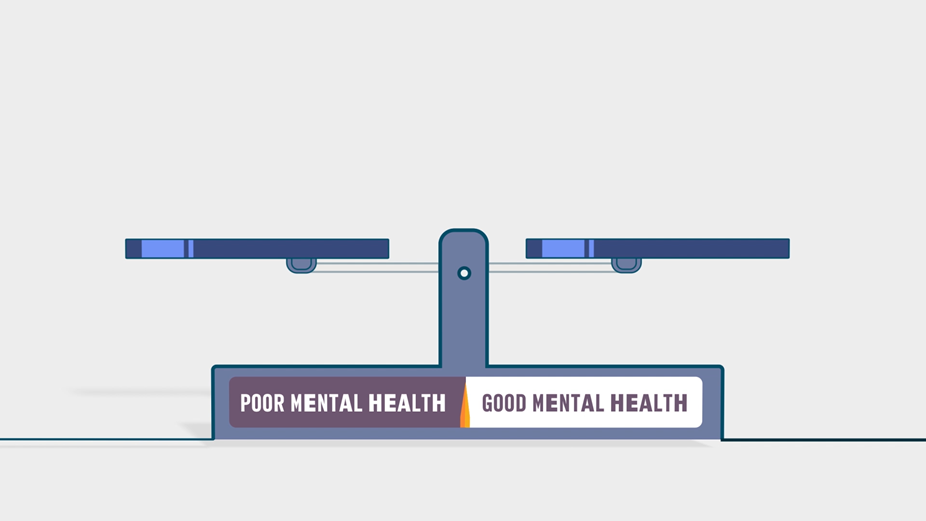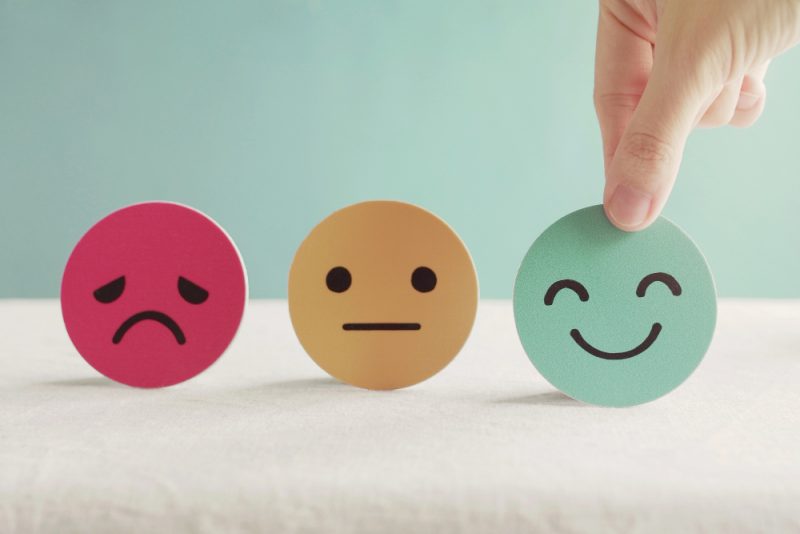Section 1: Exploring attitudes and feelings towards change
Section 1: Exploring attitudes and feelings towards change
Friday, 14 May 2021
This section of the toolkit will help young people to explore their attitude towards change and the variety of feelings they can experience when transitioning from primary to post-primary school.
During times of uncertainty or change, young people can experience a range of feelings. For those who find this change difficult, it can have an effect on their mental health and wellbeing. Exploring some of these topics can help prepare young people for the change ahead.
Learning intentions:
- Understanding that mental health is something we all have
- Realising that mental health can change depending on our circumstances
- Accepting change as a normal part of life
- Identifying feelings that change may bring up.
What is mental health?
It may be useful to draw young people’s attention to the fact that we all have mental health. We know that mental health and wellbeing can change over time depending on personal factors such as coping skills or self-esteem, as well as external factors such as what’s happening with family, friends and school.
In Jigsaw, we like to describe our mental health as existing on a scale. There’s good mental health on one end of the scale and poor mental health on the other end of the scale. Where we are on the scale can change depending on what’s going on in our lives.

-
Activity
We know that our mental health can change over time depending on personal factors such as coping skills or self-esteem, as well as external factors such as what’s happening with family, friends and school.
Consider some of the following:
- Arguments with friends
- Spending time outdoors
- School tests
- Doing things we enjoy – sport, art, video games, hobbies
- Quality time with friends, family, pets.
Mention some of these points and ask young people for feedback on whether they can make them feel good or bad. Describe how some things can make us feel good and move us closer to the ‘good mental health’ end of the scale, and how others make us feel bad and may move us closer to the ‘poor mental health’ end of the scale.
Invite them to consider what happens when there are more things going on in our lives that make us feel good than bad. You can use this to highlight how our mental health can change depending on what’s going on in our lives.
You can also use this analogy to highlight how it is important to do the things that make us feel good and enjoy life. In section 3 we will explore things young people can do every day to feel good and support their mental health and wellbeing.
Exploring attitudes towards change
Everyone experiences change throughout their lives. Change and uncertainty can have an effect on our mental health and wellbeing. We know that being able to adapt to change can be a useful skill.
The following exercise will encourage young people to explore attitudes towards change and how change is a normal part of life.

-
Discussion
Like the change in seasons, life changes are normal
The seasons change all the time. Without this change, crops and grass wouldn’t be able to grow and wildlife wouldn’t be able to survive.
When we experience changes in life, they can help us to grow too.
From the discussion point: like the change in seasons, life changes are normal guide a conversation with young people around the fact that change is a normal part of life.
Identifying feelings that change might bring up
Being able to explore and identify feelings can be useful for young people as they face challenges in their lives.
The following resources will allow young people to explore and acknowledge the variety of feelings that may be brought up during the primary to post-primary school transition.
Young people will reflect on:
- How everyone experiences change differently
- How our experiences of change and uncertainty can have an impact on our mental health and wellbeing
- Understanding they may experience a variety of feelings as they navigate the change from primary to post-primary school
- Realising it’s OK to have mixed feelings about this change.

School transitions: part 1
This animation is the first of a three-part series that describes the experience of young people as they prepare for the transition from primary to post-primary school and the experiences they have along the way.
Watch part one with your class and use the associated worksheet to explore some of the feelings the characters experience as they prepare for the change from primary to post-primary school.
Download this worksheet on identifying feelings.
Ask students for feedback on the answers they have given. You can use prompt questions, such as:
- Did all of the characters feel the same way?
- What did you notice about each character’s experience?
It is important to highlight that the characters may have mixed feelings during this new beginning and that is OK.
Everyone experiences change differently. Young people may have a variety of different feelings about these changes.
Support documents
Move on to section 2: Preparing for change
This section looks at the attitudes young people have towards mental health, and feelings that change may bring up.
Section 2: Preparing for change will help support young people to feel more prepared for the changes ahead.







